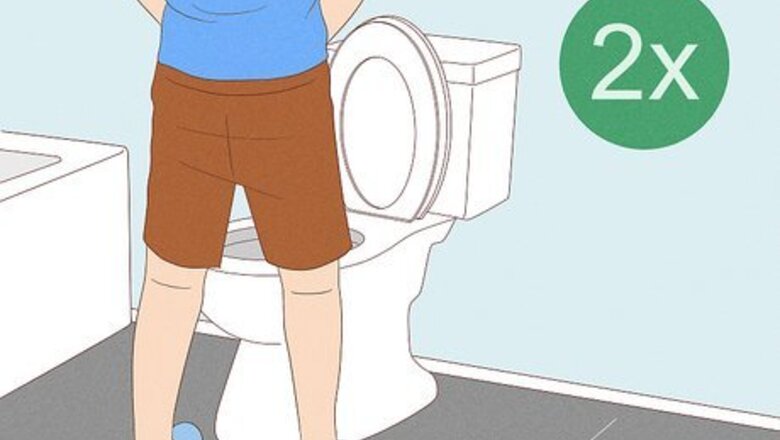
views
- Urinate twice every time you go to fully empty your bladder and do Kegel exercises to strengthen your bladder muscles.
- Go to the bathroom whenever you feel the urge to go, don’t push or strain, and stay hydrated to keep your bladder healthy.
- See a doctor if you haven’t already. A reduction in urine flow may be a symptom of an underlying condition.
- The most common cause of a weak urine flow in men is BPH (benign prostatic hyperplasia), which is an inflamed prostate.
Try double voiding.
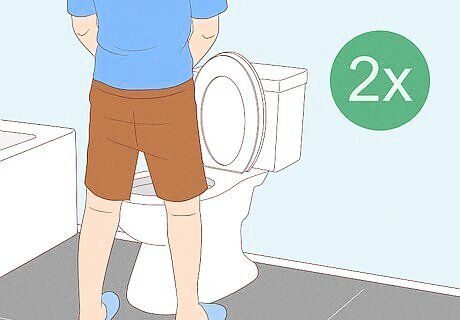
Spend an extra few seconds urinating again after peeing the first time. If you struggle with fully emptying your bladder when you go, try peeing again immediately after you finish. It’s common for your bladder to send incomplete signals when your bladder isn’t completely empty, so give your body a second shot at emptying your bladder. If you struggle to go again try: Sitting down on the toilet and relaxing. Reading something while you’re waiting to urinate. Turning the faucet or shower on. Relaxing your pelvic floor.
Do Kegel exercises.
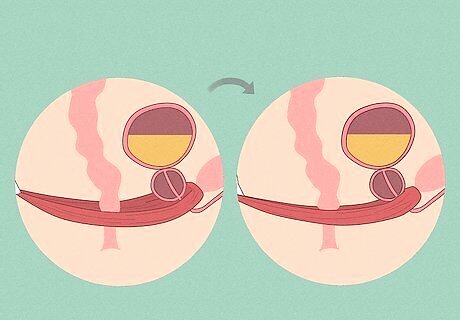
Kegel exercises will strengthen the muscles that control urine flow. Women and men alike can benefit from doing Kegel exercises, which strengthen the pelvic floor and improve continence and urinary flow. You can do Kegels anywhere, simply follow these instructions: While urinating, squeeze the muscles that stop your flow midstream – those are the muscles you want to isolate. You can do the exercise in any position. Tighten those muscles, hold for 5 seconds, then relax. Repeat this several times in a row. Gradually work up to holding the contraction for 10 seconds, then resting for 10 seconds. Try to do three sets of ten repetitions every day. Don’t squeeze other muscles like your abs, legs, or butt. Focus on flexing only your pelvic floor muscles.
Stop pushing when you urinate.
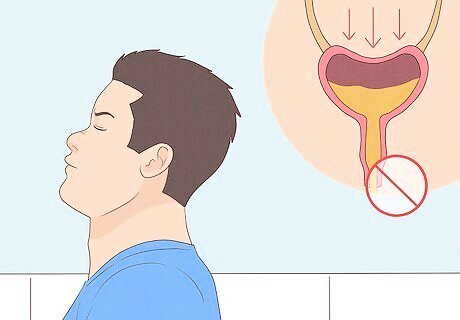
Let your bladder do its thing naturally without straining. If your bladder is healthy, you should not need to strain any muscles to urinate. Some people will push a bit to make sure that they’ve fully emptied their bladder, but this can accidentally train your body to need that straining feeling to urinate. If you do have to push or strain when you urinate in order to fully empty your bladder, see your doctor. If you’re male, this is a symptom of BPH (benign prostatic hyperplasia), a benign condition that causes an enlarged prostate. While not dangerous, it does require treatment.
Avoid antihistamines and decongestants.
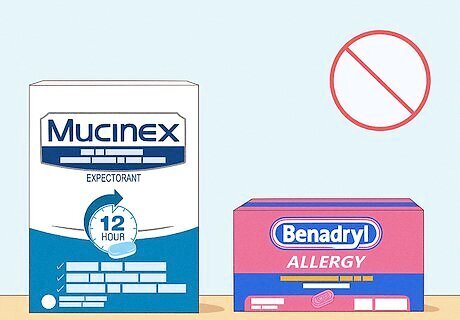
Cold medication can trigger urinary retention. Antihistamines (like Benadryl or Zyrtec) and decongestants (like Mucinex or Dayquil) can minimize your bladder muscle’s ability to contract and tighten. If you’ve been taking a ton of cold medication and you’re struggling to empty your bladder, switching to a medication that doesn’t contain pseudoephedrine or phenylephrine. You can still take loratadine (Claritin) if you’re feeling stuffy or your allergies are bothering you.
Go whenever you have the urge to pee.
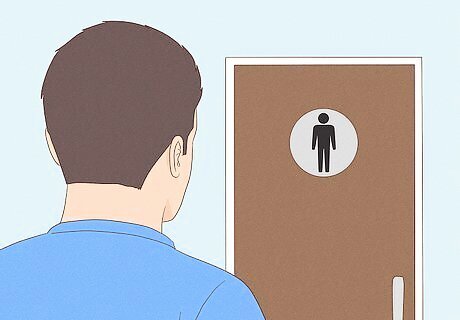
Holding it when you need to urinate can make this problem worse. The urge to urinate is your body’s signal that it’s ready to get rid of waste. If you start ignoring those signals you may accidentally train your body to not get rid of everything when it’s time to pee. As soon as you feel like it’s time to go, head for the bathroom.
Limit caffeine and alcohol.
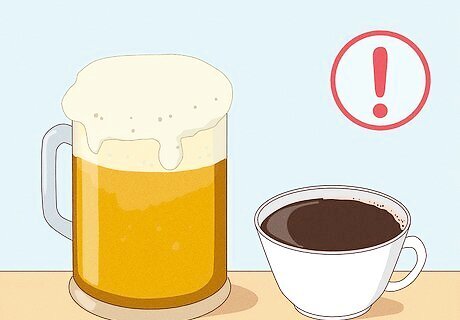
Caffeine and alcohol disrupts your bladder’s normal rhythm. A daily cup of coffee and a daily beer are no big deal, but overdoing it can toy with your body’s ability to get rid of waste. This is especially important if you have problems with emptying your bladder at night, since alcohol can mess with the quality of your sleep and caffeine can keep you awake. Aim to avoid drinking more than 1-2 drinks a night. Caffeine is also a diuretic, which means it makes you urinate more often.
Drink plenty of water.
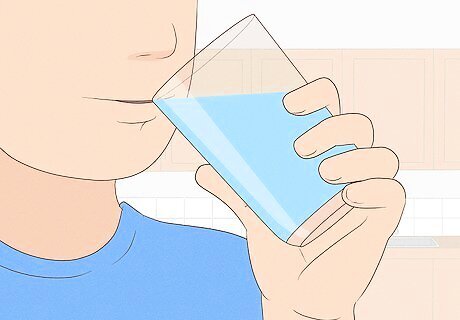
Staying hydrated will help regulate your urine production. You might be frustrated with your low urine flow and want to avoid urinating as much as possible, but not drinking enough water can make matters worse. Drink water throughout the day and avoid drinking it late in the evening so you won’t have to get up as much during the night. Drink water whenever you’re thirsty and stop whenever you aren’t thirsty. Trust your body’s signals when it comes to staying hydrated.
Eat a healthy diet.
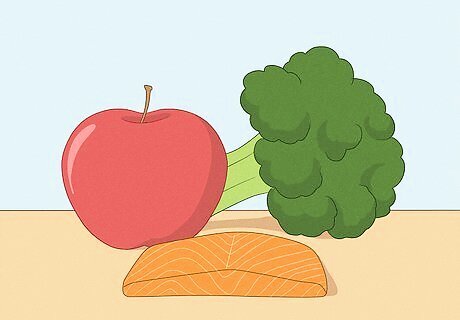
Consume a diverse diet to keep your bladder healthy. Eat a diverse diet full of plenty of fruits, veggies, and lean proteins to treat your body right. Cut back on anything super greasy or full of sugar, which can irritate your kidneys and bladder. Sticking to a healthy diet will make it a lot easier to fully empty your bladder when you feel the urge to go. Generally speaking, anything that can upset your stomach or cause heartburn is capable of irritating your kidneys, and therefore your bladder.
Use a heat pack.
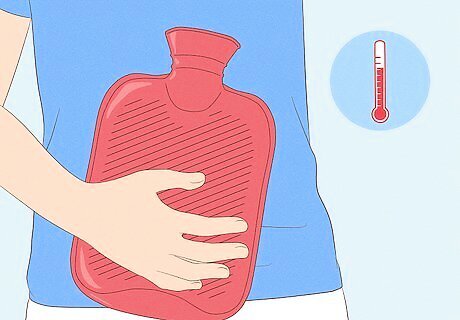
Relax your bladder muscles with some warmth to improve urine flow. Place a hot water bottle or heating pack on your low abdomen between your belly button and your pubic bone. Like any other muscle, the heat will relax your bladder and help you urinate more freely. You can take a warm bath to relax your muscles and stimulate urine flow if you prefer.
Heal from any injuries.
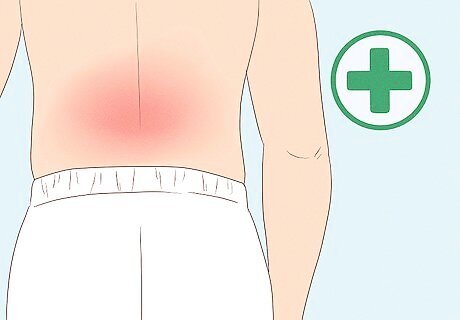
If this problem developed after you were hurt, rest up. Your bladder is a sensitive organ and there are a ton of nerves that send signals between your bladder your nervous system. If you’ve injured your back, legs, or chest, it can interfere with your ability to urinate. Take it easy and follow your doctor’s directions to heal from your injury. You should be able to comfortably urinate once you feel better. If you’re dealing with a minor injury and you haven’t seen a doctor, go get a checkup.
Get regular prostate exams if you’re over 50.
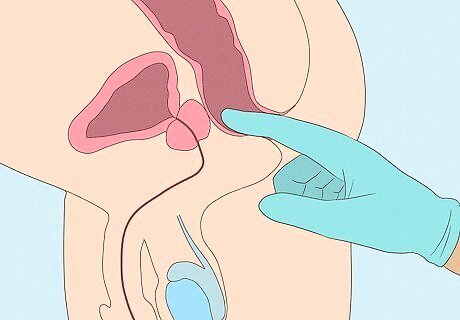
In men, weak urinary flow is often due to an enlarged prostrate. The prostate is a gland in men that sits low in the abdomen, and when it gets enlarged it squeezes the urethra. This causes slow flow, difficulty urinating, dribbling, and a weak stream. It is very common for men to get enlarged prostates after the age of 50. This condition is called benign prostatic hyperplasia, or BPH, which is a noncancerous enlargement of the prostate. If you have urinary trouble, see your doctor to be checked for BPH. If you have a family history of prostate issues, you should start getting prostate exams at 45.
Talk to your doctor about medication.
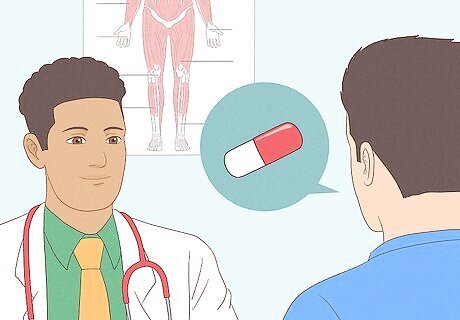
There are plenty of meds that can make it easier to urinate. Alpha-blockers are most commonly prescribed for men with mildly distressing symptoms. These can cause low blood pressure and dizziness when going from sitting to standing, so be careful when you start taking these medications. They include tamsulosin (Flomax), terazosin (Hytrin), doxazosin (Cardura), alfuzosin (Uroxatral), and silodosin (Rapaflo). Your doctor may also prescribe an alpha-reductase inhibitor (a type of anti-androgen) like finasteride (Proscar) or dutasteride (Avodart) for larger prostates.
Treat the underlying condition.
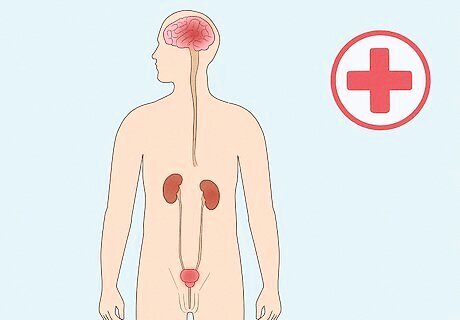
Many medical conditions can cause a weak urinary flow. While BPH is the most common cause of a weak urinary flow in men, there are other conditions that may require treatment. However, anything that impacts your nervous system or blood flow can mess with your bladder, including Parkinson’s, multiple sclerosis, cerebral palsy, and even erectile dysfunction. See your doctor to get a diagnosis and find a treatment plan that works for you. If this is dramatically impacting your daily life, you’re in pain, or you have any other symptoms associated with your urination and you haven’t seen a doctor yet, make an appointment.




















Comments
0 comment